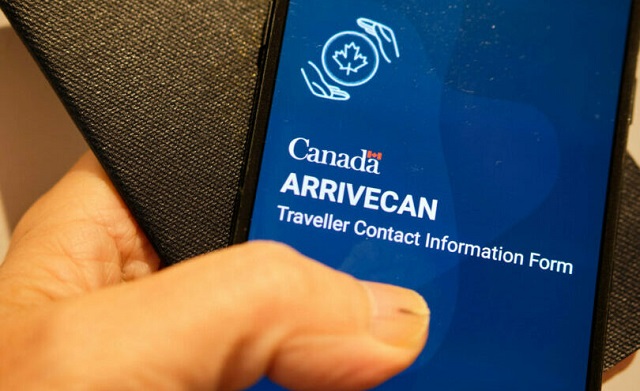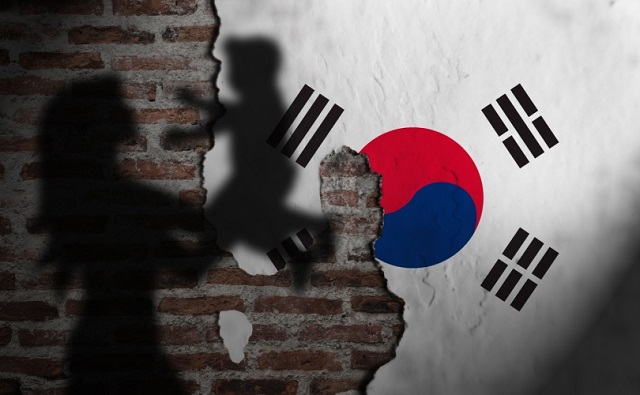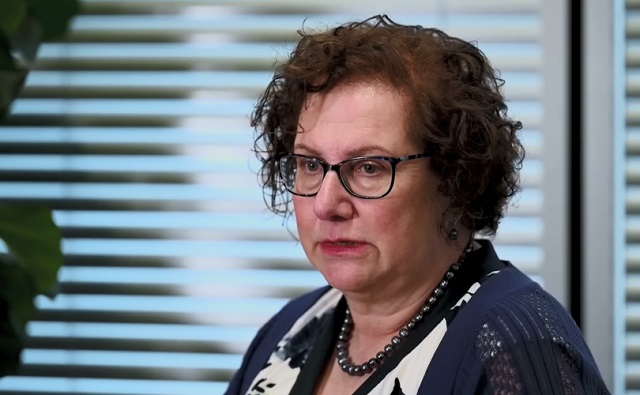COVID-19
Canada’s border agency says low risk of COVID spreading via paper used to justify ArriveCAN

From LifeSiteNews
The controversial app, which was initially slated to cost taxpayers $80,000 but ended up costing over $50 million, is currently under investigation over allegations of corruption related to government contracts.
Despite Canadian federal authorities at the time admitting the risk of getting a COVID infection from paper forms was low, the Canada Border Services Agency (CBSA) said it was that fear that spurred the creation of the federal government’s $59.5 million scandal-ridden ArriveCAN travel app.
The admission was made by the CBSA’s vice-president Jonathan Moor on April 3, during a testimony at a House of Commons public accounts committee meeting.
“We were told we could catch COVID from touching documents,” said Moor. “Our number one priority initially working with that was to get the electronic form up and running.”
Despite Moor’s claims, Canada’s Public Health Agency’s deputy chief public health officer, Dr. Howard Njoo, had told reporters at the start of the COVID crisis that there was no evidence the coronavirus could be transmitted via paper.
“For postal workers, I am not quite sure what the risk would be,” said Njoo on March 23, 2020. “The risk is not really out there. There should be no chance of interaction.”
The agency noted at the time that proper hand-washing was enough for federal workers who handled a lot of paperwork.
Despite the agency itself admitting there was no risk of virus transmission via paper forms, Moor on March 26, during testimony at the House of Commons government operations committee, again claimed getting infections from paper was a reason ArriveCAN was needed.
“A lot of the individual Border Services officers really were very reluctant to touch paper because the Public Health Agency had said you can catch Covid from touching paper, so the necessity to get a paperless process in place was really important,” said Moor.
Moor, during testimony, also defended his agency’s work on the travel app, but admitted, “We know we made mistakes.”
This prompted Bloc Québécois MP Nathalie Sinclair-Desgagné to say to him, “Mr. Moor, all the countries in the world had to deal with that crisis and very few of them thought to have $60 million for an app like ArriveCAN.”
“In some self-respecting countries there are internal controls,” she added.
She then asked Moor if he thought he did a “good job,” to which he replied, “I do believe I did my job well during the pandemic.”
“This is a time where people were crossing the border to return back to Canada when we were told we could catch COVID from touching documents,” he said.
Besides the risk of getting infected from paper as being a reason for needing to create ArrriveCAN, the CBSA had also suggested other reasons why it was needed. In a report from 2023, it claimed that the app had saved travelers “five minutes” of time at border crossings, however, this claim was disputed by the Customs and Immigration Union.
The CBSA has also claimed that ArriveCAN “saved lives,” which is a claim it has recognized as being uncertain.
“The Agency cannot quantify the exact number of lives indirectly saved through ArriveCan,” it told MPs on December 7, 2023.
Canadians were told ArriveCAN was supposed to have cost only $80,000, but the number quickly ballooned to $54 million, with the latest number showing it cost some $59.5 million.
As for the app itself, it was riddled with tech glitches along with privacy concerns from users.
ArriveCAN was introduced in April 2020 by the government of Prime Minister Justin Trudeau and made mandatory in November 2020. The app was used by the federal government to track the COVID jab status of those entering the country and enforce quarantines when deemed necessary.
When the app was mandated, all travelers entering Canada had to use it to submit their travel and contact information as well as any COVID vaccination details before crossing the border or boarding a flight.
In February, LifeSiteNews reported that Conservative Party of Canada MPs accused the CBSA of lying to Parliament over sweetheart contracting approvals concerning ArriveCAN.
Troubled Travel apps’ creation is currently under investigation
Canadian Auditor General Karen Hogan announced an investigation of ArriveCAN in November 2022 after the House of Commons voted 173-149 for a full audit of the controversial app.
The House of Commons Standing Committee on Government Operations and Estimates (OGGO) is investigating how various companies such as Dalian, Coaradix, and GC Strategies received millions in taxpayer dollars to develop the contentious quarantine-tracking program.
LifeSiteNews reported that an investigation into ArriveCAN by Alexander Jeglic, the government’s procurement ombudsman, revealed that three-quarters of the contractors who were paid to work on ArriveCAN did not do anything in building the scandal-plagued app.
The CBSA was tasked with building the ArriveCAN app, and thus far, the investigation’s report singles out GC Strategies, saying the two-man company did not prove that its list of subcontractors was qualified to work on the app.
The procurement ombudsman’s report also found “numerous examples” in which GC Strategies “had simply copied and pasted” required work experience that was listed by the government for its contractors.
The report also noted that it was unusual the government used criteria for the app’s tender that were “overly restrictive and favoured” GC Strategies, which won the contract bid despite the fact no other bids were submitted.
Last year, LifeSiteNews reported on two tech entrepreneurs testifying before the committee that during the development of the ArriveCAN travel app they saw firsthand how federal managers engaged in “extortion,” “corruption,” and “ghost contracting,” all at the expense of taxpayers.
COVID-19
NIH Quietly Altered Definition For Gain-Of-Function Research On Its Website, Former Fauci Aide Confirms

 From the Daily Caller News Foundation
From the Daily Caller News Foundation
By JASON COHEN
National Institutes of Health (NIH) Principal Deputy Director Lawrence Tabak confirmed on Thursday that his agency’s communications department altered NIH’s definition for gain-of-function research, with the change being “vetted” by “experts.”
The NIH until Oct. 20, 2021 defined this research as “modif[ying] a biological agent so that it confers new or enhanced activity to that agent,” while “some scientists use the term broadly to refer to any such modification,” according to the House Oversight Committee. Republican Rep. Nicole Malliotakis of New York questioned Tabak, a former aide to Dr. Anthony Fauci, about the agency changing its definition of the research on its website, asking him who authorized the alteration.
WATCH:
The current website does not define gain-of-function research, but asserts this research is usually uninvolved with enhanced potential pandemic pathogens.
“The change was made by our communications department because of the confusion that people have about the generic term of gain-of-function and the specific term gain-of-function,” Tabak testified.
Malliotakis responded by suggesting the communications department would not be qualified to make a change like this and must have had other input.
“The content was vetted,” Tabak testified. “By individuals who are subject-matter experts.”
Fauci firmly denied that the National Institute of Allergy and Infectious Diseases (NIAID) funded gain-of-function research on bat-based coronaviruses at the Wuhan Institute of Virology (WIV) before the COVID-19 pandemic during a Senate hearing in May 2021.
“The NIH has not ever and does not now fund gain of function research in the Wuhan Institute of Virology,” Fauci said.
Tabak testified on Thursday that the NIH did fund this research at the Wuhan Institute of Virology, but it “depends on [the] definition.”
The NIAID, which Fauci previously led, funded the nonprofit group EcoHealth Alliance to study bat-based coronaviruses in China that consisted of the transfer of $600,000 to the WIV, the Daily Caller News Foundation previously reported.
COVID-19
COVID Lab Leak: Over four later, EcoHealth Alliance funding is finally suspended

From Heartland Daily News
Thursday, May 16, 2024
Federal Funding Stripped From Nonprofit at Center of COVID Lab Leak Controversy
Today, the Biden administration suspended federal funding to the scientific nonprofit whose research is at the center of credible theories that the COVID-19 pandemic was started via a lab leak at the Wuhan Institute of Virology.
This morning, the U.S. Department of Health and Human Services (HHS) announced that it was immediately suspending three grants provided to the New York-based nonprofit EcoHealth Alliance (EHA) as it starts the process of debarring the organization from receiving any federal funds.
“The immediate suspension of [EcoHealth Alliance] is necessary to protect the public interest and due to a cause of so serious or compelling a nature that it affects EHA’s present responsibility,” wrote HHS Deputy Secretary for Acquisitions Henrietta Brisbon in a memorandum signed this morning.
For years now, EcoHealth has generated immense controversy for its use of federal grant money to support gain-of-function research on bat coronaviruses at the Wuhan lab.
In a memo justifying its funding suspension, HHS said that EcoHealth had failed to properly monitor the work it was supporting at Wuhan. It also failed to properly report on the results of experiments showing that the hybrid viruses it was creating there had an improved ability to infect human cells.
Congressional Republicans leading an investigation into EcoHealth’s research in Wuhan, and the role it may have played in starting the pandemic via a lab leak, cheered HHS’s decision.
“EcoHealth facilitated gain-of-function research in Wuhan, China without proper oversight, willingly violated multiple requirements of its multimillion-dollar National Institutes of Health [NIH] grant, and apparently made false statements to the NIH,” said Rep. Brad Wenstrup (R–Ohio), chair of the House’s Select Subcommittee on the Coronavirus Pandemic in a statement. “These actions are wholly abhorrent, indefensible, and must be addressed with swift action.”
Beginning in 2014, EcoHealth received a grant from NIH’s National Institute of Allergies and Infectious Diseases (NIAID) to study bat coronavirus in China. Its initial scope of work involved collecting and cataloging viruses in the wild and studying them in the lab to spot which ones might be primed to “spillover” into humans and cause a pandemic.
Soon enough, EcoHealth used some of the viruses they’d collected to create “chimeric” or hybrid viruses that might be better able to infect human lung cells in genetically engineered (humanized) mice.
This so-called “gain-of-function” research has long been controversial for its potential to create deadly pandemic pathogens. In 2014, the Obama administration paused federal funding of gain-of-function research that might turn SARS, MERS, or flu viruses into more transmissible respiratory diseases in mammals.
In 2016, NIH flagged EcoHealth’s work as likely violating the 2014 pause.
EcoHealth President Peter Daszak argued to NIH at the time that the viruses his outfit was creating had not been proven to infect human cells and were genetically different enough from past pandemic viruses that they didn’t fall under the Obama administration pause.

Wuhan Institute of Virology and Peter Daszak of EcoHealth Alliance
NIH accepted this argument under the condition that EcoHealth immediately stop its work and notify the agency if any of its hybrid viruses did show increased viral growth in humanized mice.
But when these hybrid viruses did show increased viral growth in mice, EcoHealth did not immediately stop work or notify NIH. It instead waited until it submitted an annual progress report in 2018 to disclose the results of its experiments.
A second progress report that EcoHealth submitted in 2021, two years after its due date, also showed its hybrid viruses were demonstrating increased viral growth and enhanced lethality in humanized mice.
In testimony to the House’s coronavirus subcommittee earlier this month, Daszak claimed that EcoHealth attempted to report the results of its gain-of-function experiments on time in 2019, but was frozen out of NIH’s reporting system.
The HHS memo released today says a forensic investigation found no evidence that EcoHealth was locked out of NIH’s reporting system. The department also said that EcoHealth had failed to produce requested lab notes and other materials from the Wuhan lab detailing the work being done there and the lab’s biosafety conditions.
These all amount to violations of EcoHealth’s grant agreement and NIH grant policy, thus warranting debarment from future federal funds, reads the HHS memo.
That EcoHealth would be stripped of its federal funding shouldn’t come as too great a shock to anyone who watched Daszak’s congressional testimony from earlier this month. Even Democrats on the committee openly accused Daszak of being misleading about EcoHealth’s work and manipulating facts.
Rep. Raul Ruiz (D–Calif.), the ranking Democrat on the House’s coronavirus subcommittee, welcomed EcoHealth’s suspension, saying in a press release that the nonprofit failed its “obligation to meet the utmost standards of transparency and accountability to the American public.”
An HHS Office of the Inspector General report from last year had already found that EcoHealth had failed to submit progress reports on time or effectively monitor its subgrantee, the Wuhan Institute of Virology.
When grilling Daszak, Democrats on the Coronavirus Subcommittee went to great lengths to not criticize NIH’s oversight of EcoHealth’s work. The HHS debarment memo likewise focuses only on EcoHealth’s failures to abide by NIH policy and its grant conditions.
Nevertheless, it seems pretty obvious that NIH was failing to abide by the 2014 pause on gain-of-function funding when it allowed EcoHealth to go ahead with creating hybrid coronaviruses under the condition that they stop if the viruses did prove more virulent.
NIH compounded that oversight failure by not stopping EcoHealth’s funding when the nonprofit did, in fact, create more virulent viruses, and not following up on a never-submitted progress report detailing more gain-of-function research until two years later.
The House Subcommittee’s investigation into NIH’s role in gain-of-function research at the Wuhan lab is ongoing. Tomorrow it will interview NIH Principal Deputy Director Lawerence Tabak. In June, it will interview former NIAID Director Anthony Fauci.
Originally published by Reason Foundation. Republished with permission.
-

 Automotive1 day ago
Automotive1 day agoGovernments in Canada accelerate EV ‘investments’ as automakers reverse course
-

 Health1 day ago
Health1 day agoSouth Korean president declares low birth rate a ‘national emergency,’ plans new ministry to address it
-

 COVID-192 days ago
COVID-192 days agoJapan’s most senior cancer doctor: COVID shots are ‘essentially murder’
-

 conflict18 hours ago
conflict18 hours agoWhite House Reportedly Worried About Russia’s Sudden Momentum Months After Biden Declared Putin ‘Already Lost’ War
-

 Economy1 day ago
Economy1 day agoBiden signs suicidal ‘No Coal’ pact, while rest of world builds 1,000 new plants
-

 Crime19 hours ago
Crime19 hours agoSlovakian prime minister who opposed WHO Pandemic Treaty shot in assassination attempt
-

 Alberta23 hours ago
Alberta23 hours agoFortis et Liber: Alberta’s Future in the Canadian Federation
-

 Health1 day ago
Health1 day agoUK pediatrician who led review of child ‘transitions’ says US medical groups ‘misleading the public’







